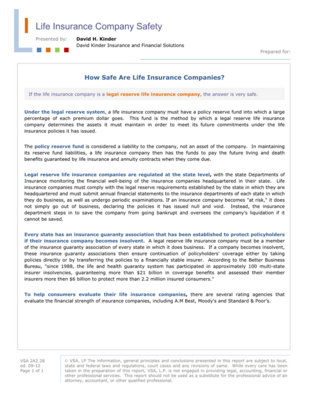Allstinite
New Member
- 6
There is this old book Becoming Your Own Banker by Nelson Nash among another few about using whole-life insurance as an investment vehicle.
The idea is to put as much as possible in a policy to let it grow tax-free and take loans from it instead of draining your savings. Most books are outdated and do not cover specifics or give enough, or even good examples.
Is there anybody here with knowledge about the subject that could help? My case:
I got a raise and now I'm making $105k/year before taxes from salary (W-2). Almost 25% is deferred. Another $3k/year from a money market account (savings). I file as single, no kids and use the standard deduction. In sum, I pay around $20k in taxes per year. I am 40yo by the way, living in a State without income tax.
I live below my means, spending a 1/3 of my wage and saving the rest.
I like to keep my savings growing in a money market account and having the money available in case of a crash so I can buy assets at a more affordable price. Be it stocks or even real estate if the opportunity arises.
Can I put +50% of my wages in a policy to make my taxable income lower and have it as a "savings account" that I can borrow against if needed for purchases (like a car or house)?
With interest rates at normal levels today (5%), can I expect the money going to the policy to grow at similar rate or better? Where can I find recent numbers? And what If I need to borrow, how much would the rate be?
What happens if you lose your job and can't make a payment?
And for safety of your life savings, how to sleep knowing the insurance company could go bankrupt the next day and lose all your money? Is the money insured somehow? How many companies to choose from have a good track record of many decades (or even +100 years)?
I know those are a lot of questions but I'm not sure where to find an agent who could know those answers.
The idea is to put as much as possible in a policy to let it grow tax-free and take loans from it instead of draining your savings. Most books are outdated and do not cover specifics or give enough, or even good examples.
Is there anybody here with knowledge about the subject that could help? My case:
I got a raise and now I'm making $105k/year before taxes from salary (W-2). Almost 25% is deferred. Another $3k/year from a money market account (savings). I file as single, no kids and use the standard deduction. In sum, I pay around $20k in taxes per year. I am 40yo by the way, living in a State without income tax.
I live below my means, spending a 1/3 of my wage and saving the rest.
I like to keep my savings growing in a money market account and having the money available in case of a crash so I can buy assets at a more affordable price. Be it stocks or even real estate if the opportunity arises.
Can I put +50% of my wages in a policy to make my taxable income lower and have it as a "savings account" that I can borrow against if needed for purchases (like a car or house)?
With interest rates at normal levels today (5%), can I expect the money going to the policy to grow at similar rate or better? Where can I find recent numbers? And what If I need to borrow, how much would the rate be?
What happens if you lose your job and can't make a payment?
And for safety of your life savings, how to sleep knowing the insurance company could go bankrupt the next day and lose all your money? Is the money insured somehow? How many companies to choose from have a good track record of many decades (or even +100 years)?
I know those are a lot of questions but I'm not sure where to find an agent who could know those answers.

